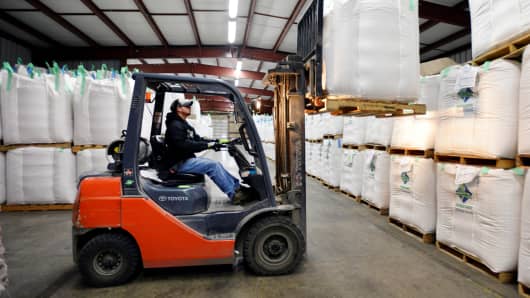American farmers watched warily this week, as a tit-for-tat trade fight between the world's top two economic superpowers played out, threatening lucrative agricultural exports including soybeans.
If China follows through on its plan to impose a 25 percent tariff on soybeans, it would make global suppliers like Brazil even more attractive to Chinese buyers. It also would encourage those suppliers to add more acres of soybeans, and then negatively impact the price American farmers can get for their crop.
"Growing trade disputes have placed farmers and ranchers in a precarious position," Zippy Duvall, a Georgia farmer and president of the American Farm Bureau Federation said in a statement Friday. "We have bills to pay and debts we must settle, and cannot afford to lose any market, much less one as important as China's."
Earlier in the week, the Chinese announced retaliatory tariffs of up to 25 percent on 106 American goods, including soybeans, cotton, corn, sorghum, wheat and beef. It came on the heels of the Trump administration proposing duties on more than 1,300 imported products in China's machinery, electronics, aerospace and robotics sectors.
President Donald Trump then suggested an additional $100 billion in tariffs could come on top of what already was announced, and aBeijing official responded that China too was prepared to add more tariffs on U.S. goods. On Saturday, Trump insisted that the U.S.-China trade imbalance was not sustainable.
"A trade war is not good for us," said Art Barnaby, an agricultural economics professor at Kansas State University. "There's a lot of uncertainty as to where this is going to end up."


